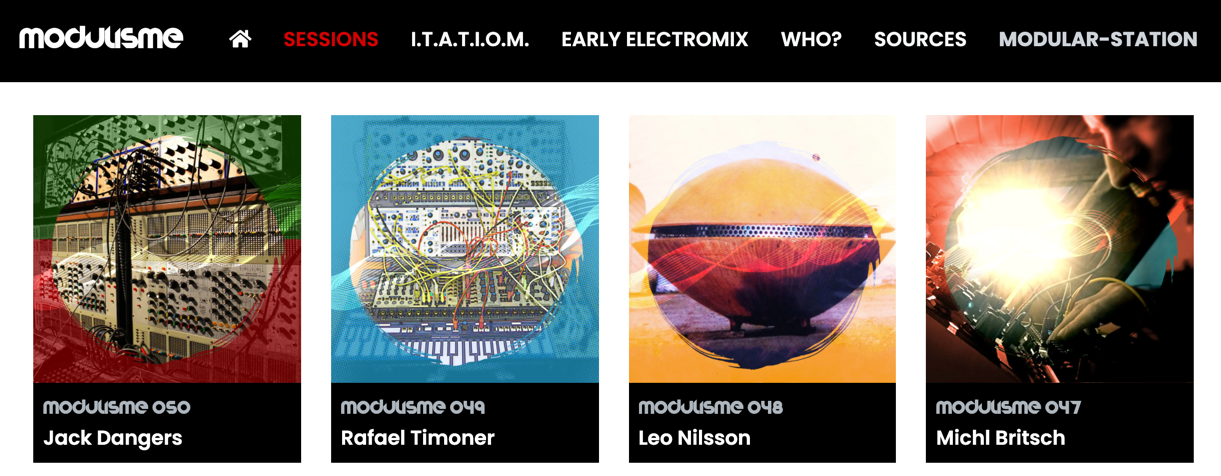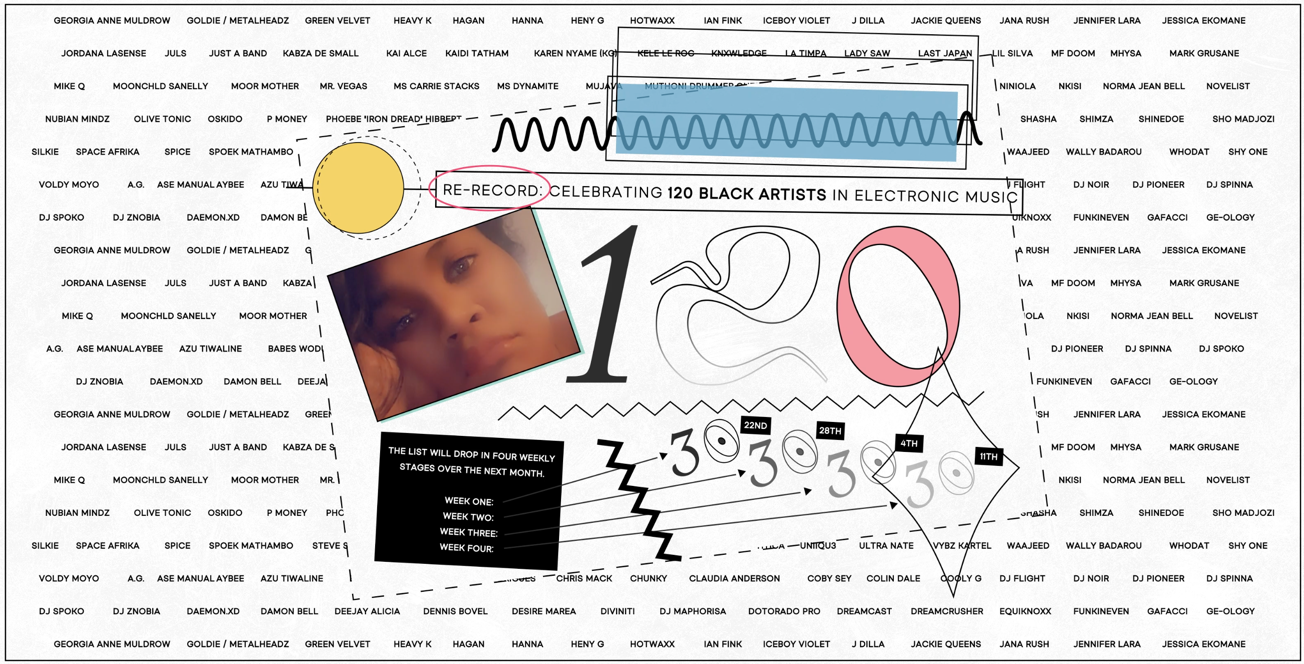Sounds For A Summer Night, Part 3 - Pods (and Seeds of Contemplation)
For some folks, summer is a time when we take a break from the more rigorous formal activities we pursue the rest of the year - grabbing a quick Sci-Fi romp rather than continuing to try to read through the Booker Prize shortlist or that verse translation of De Rerum Naturum we've really been promising ourselves we'd finish at poolside. I don't know about you, but my listening tends in a similar direction (some of which I've described in part 1 and part 2 of this series). Good or interesting summer listening need not be a diverting escape from mental activity — there's absolutely no reason that a little venturing afield can't be an opportunity for exploration and reflection, too. This time out, I'd like to share some entertainments that I hope will be as enlightening as they are enjoyable - podcasty things to entertain and to engage.
A Note to Readers
Writing about Max or Ableton podcasts for possible summer listening if you’re a Cycling ’74/Ableton person is a little bit of a complex issue for me — since the world is filling with talented and dedicated persons whose podcasting and regular postings are aimed at staking out a pedagogical (and often Patreonized) life for themselves, I’m loathe to single out anyone at the expense of someone else. Please explore the space beyond our own Did You Know videos and the occasional online tutorials on filters, MC and the like and find what you personally find compelling, and add them to the responses to this article for the perusal of your peers. Onward!
Pre-electronic and decolonizing listens
There's been a very interesting discussion making the rounds on the notion of decolonizing electronic music. I've been a bit surprised to discover the extent to which those discussions have chosen to focus so strongly on the notion of software alone, and on individual performers rather than seeking to integrate non-western forms and musical perspectives more broadly into electronic music practice. I'm comfortable waiting for that next bit of the community conversation to emerge (and I know it will, as things improve on the software front), but let me tell you what I've been doing in the meantime: listening to music that can be considered “electronic” only in the manner of its making, and trying to consider "how we got here" in a broader global sense.
That habit stems from the entirely accidental discovery around the turn of the century of The Secret Museum of Mankind… Not the picture book, but rather the radio show on WFMU that Citizen Kafka and Pat Conte ran for many years that spun rare and astounding 78 RPM recordings from the earliest days of recorded history — back when the people being recorded never thought to temper their presentations or worry about “the next take.” I was transfixed, and it started what’s become an ongoing interest of mine in what I guess you could consider a kind of decolonized listening. Although the program ceased broadcasting a couple of years in, it’s all lovingly archived in podcast form at the link above.

In some ways, we're living through a golden age for the release of that kind of work, thanks to labels like Dust to Digital (whose release Longing for the Past: the 78 RPM Era in Southeast Asia is so amazing that it's one of the recordings I'm mentioning that's not free and online. It's worth it). All it takes is someone with a little love and a stack of 78s to open our past to us, and open our ears.
I can recommend no better starting point than the Excavated Shellac website, whose subtitle says it all: "An Alternate History of the World's Music." This years-in-the-making website collects amazing recordings from all over the world — think of it as a 78 RPM version of the "world radio" websites I've mentioned in previous installments of this series, along with copious research into their origins, the persons who made them, and the music itself. All you have to do is to click on the drop-down menu and choose the geographical location of your choice for a visit to the days when people first started making recordings to sell newfangled phonograph records locally, with the term "local" being very widely defined.

Listening A Little More Outside (and Inside) the Box
I realize that not everybody is going to be stopped in their tracks by 78s of music from the Thai or Indonesian court centers, Indian brass bands, or Corsican choral music. Although it’s not as far afield or connected as strongly to my desire to listen more broadly, there have been some more explicitly synthesis-based podcasts that have enlivened my “porch at dusk” or “driving home from the campsite” listening, too.
The origins of this entire summer listening series began with my praising the podcasting work of my colleagues Darwin Grosse and Dan Derks, whose Art + Music + Technology and Sound + Process podcasts mix biography and personal practice to great effect. They’re not alone, and here are a few other possibilities (your suggestions are welcome in the comments, of course).
Darwin’s Art + Music + Technology podcast still remains one of the finest and most consistently interesting podcasts out there in terms of breadth, inclusiveness, surprise, and just plain decent storytelling.) Darwin also name checked our former colleague Dan Derks’ Sound + Process podcast, which
I’d be doing you a disservice by not starting by mentioning two stalwarts of the modular podcast world:
For West Coast synthesis aficionados the world over, the Source of Uncertainty podcast is the motherlode podcast of information about modules, users, and the community of Buchlaphiles.

Tim Held’s Podular Modcast continues to range gloriously afield on its self-stated mission of “…staring into the depths of modular synthesis in the hopes that it stares back.”

More recently, I’ve been following the SynthUX podcast with some interest. It tends to focus on a similar territory, but focus more explicitly on questions of how synth tools are designed from the perspective of user experience (UX). It’s the “here’s why I did what I did” podcast from many of your favorite synth designers.

Assuming that your primary interest is listening to work made with that equipment, Modulisme may be just what you’re looking for. Their Modulisme Sessions highlight contemporary individual performances past and present...

...and the Early Electromix portion of the website curates earlier and certainly less well-known practitioners.

Other Voices
I’ve personally felt the need to spend some of my summer listening getting up to speed on more diverse voices has been my habit in the past. In addition to the good it does me personally, expanding my listening and investigations helps me to engage and collect further resources to listen to and share with friends who share my interest in listening more broadly.
In addition to working on my own attitudes and behavior, I've found inspiration and pleasure in the practice of journeying afield to listen humbly. For me, that’s an ongoing process — but here are a couple of places I’ve found to be useful introductions.
Since encountering the amazing range of female talent laid out in the pages of Pink Noises (along with the Facebook page of the same name), I’ve been looking for other sources. My first stop has been the Female:Pressure podcast and the Female:Pressure website — a one-stop shop for archives of female:pressure radio shows from around the globe, online magazines and blogs, networks/collectives/indices, and anti-racism reading and listening resources. Its also a great way to find more locally-based networks (such at the SF-based Women's Audio Mission), too. It's the first place I started, and - given its range and resources - I'm still finding my way happily across the landscape.

A little more focused set of awesomeness comes by way of Discwoman — a New York-based platform/collective showcasing/representing talent in electronic music that began its life as a festival in September 2014. It’s gone on since then to produce and curate events in over 20 cities. The website’s collection of DJ sets is worth the trip all by itself.

Of course, some of your listening may be a lot more podcast-focused. For range and usefulness and a focus on beginners, I might recommend the Girls Twiddling Knobs podcast, whose ethos centers on a wide range of subjects arranged around the idea of practice, development, and community.

When it comes to the problematic issues of discussing issues related to race and electronic music (as presented in one interesting set of exchanges here), I've been realizing that I need to not only work on the contents of my own invisible knapsack of privilege, but also to listen and learn, and to do so beyond my current frame of reference. If humble listening is your goal, a good place to start might be with surveying the landscape. Here's a great one: Re-Record's celebration of 120 black artists in electronic music, complete with pointers to pages and sets....

Too scary? You can always go for Okay Africa's list of 10

or Electric Family's list of 6 (and what lists they are, too!).
I've also found my investigations really focused and assisted by Morleyradio's multipart podcast series on the origins and development of Dub. While this is, arguably, one area of interest I've already surveyed a bit, the series' depth and range is amazing.

As with my attempts to get up to speed with feminist approaches to the discourse, I'm still taking baby steps [with the same delight I associate with a child's first steps from the period of controlled falling to full-blown "let's get into the cupboards and explore...."]. I've said this before, but I would particularly appreciate any suggestions on summer listening along these lines I might enjoy. Thanks in advance.
I hope you find something to make your summer go a little smoother (if a little odder) here, and that these sources help to make the world a little wider. Next time out, I'm going to focus on phonography and site recording (to honor the memory or R. Murray Schafer, whose recent passing turned my summery thoughts in the direction of the acoustic ecology I was sitting in the midst of with my headphones on). See you then!
by Gregory Taylor on August 17, 2021

